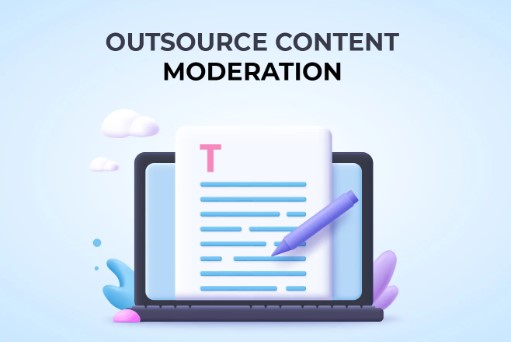The digital age has brought unprecedented opportunities for communication, connection, and creativity. However, it has also posed new challenges, particularly when it comes to managing and moderating the vast amount of content being generated online. Content moderation, the process of reviewing, filtering, and managing user-generated content, has become a crucial aspect of maintaining safe and healthy digital spaces. As the volume of online content continues to surge, many organizations are turning to content moderation outsourcing to ensure effective management while focusing on their core activities.
The Growing Challenge of Content Moderation
With the exponential growth of social media platforms, online communities, and user-generated content, the task of content moderation has become more complex and demanding. From filtering out hate speech and offensive content to ensuring compliance with community guidelines, platforms are faced with the daunting task of maintaining a positive user experience while upholding ethical standards.
The Role of Outsourcing
Outsourcing content moderation offers numerous benefits to organizations grappling with the ever-expanding digital landscape:
Expertise and Specialization: Outsourcing providers specialize in content moderation, employing trained professionals who are well-versed in identifying and handling a wide range of content, including sensitive and controversial topics.
Scalability: The demand for content moderation can vary dramatically, with surges during events, campaigns, or viral trends. Outsourcing allows organizations to scale up or down as needed without significant infrastructure changes.
Cost-Efficiency: Establishing an in-house moderation team can be expensive and resource-intensive. Outsourcing offers a more cost-effective solution, saving organizations from hiring, training, and managing an entire team.
24/7 Coverage: Outsourcing providers often operate around the clock, ensuring that content is moderated in real-time regardless of geographic time zones.
Mitigation of Legal and Reputational Risks: Incorrect or inconsistent content moderation can lead to legal and reputational issues. Outsourcing providers follow best practices and guidelines, reducing the risk of missteps.
Challenges and Considerations
While outsourcing content moderation offers compelling advantages, there are challenges to consider:
Data Privacy and Security: Content moderation involves handling user data and potentially sensitive content. Outsourcing providers must adhere to strict data privacy and security standards.
Cultural Sensitivity: Global platforms cater to diverse audiences, each with unique cultural norms. Outsourcing providers must understand and respect these nuances to avoid misunderstandings.
Quality Control: Maintaining consistent content moderation quality across different teams and regions is essential to prevent biases or gaps in coverage.
Clear Communication: Establishing open lines of communication between the organization and the outsourcing provider is vital to ensure that guidelines and expectations are understood.
Conclusion
In an era where digital spaces play a central role in communication and commerce, content moderation is a cornerstone of maintaining online integrity and user experience. Outsourcing content moderation presents an effective solution for organizations seeking to navigate the challenges of a rapidly evolving digital landscape.
